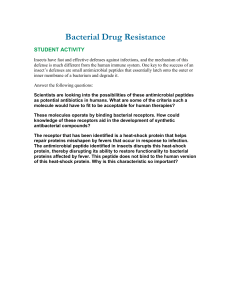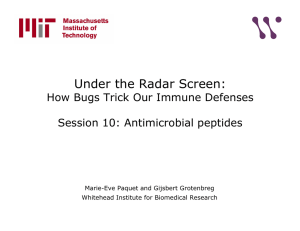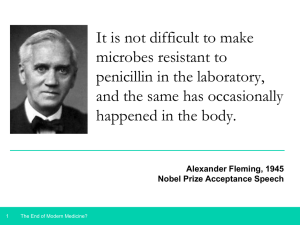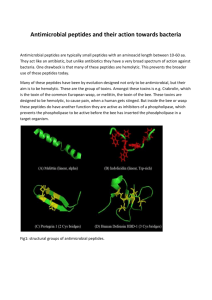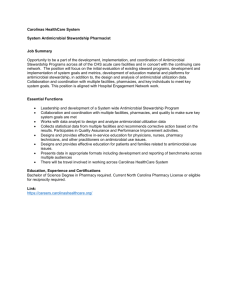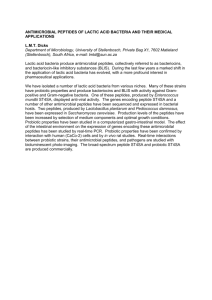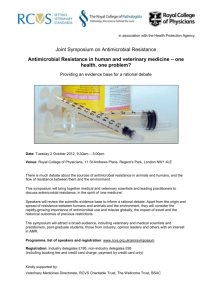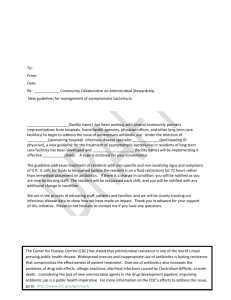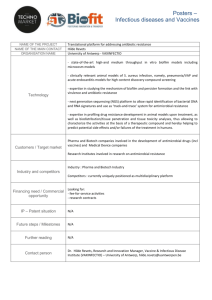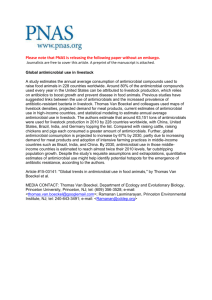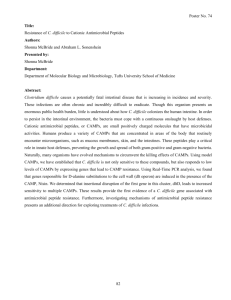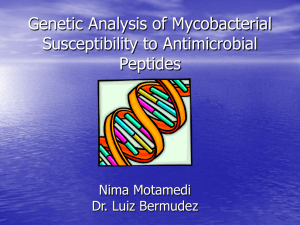May 3, 2002 Olive-Jean Burrowes
advertisement
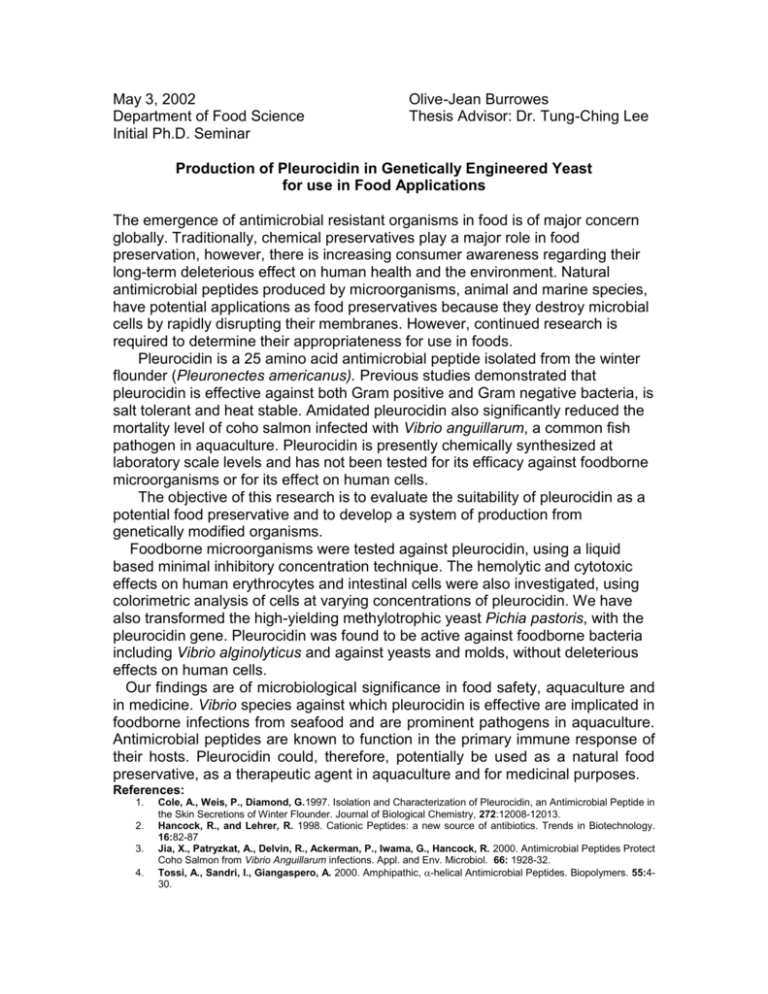
May 3, 2002 Department of Food Science Initial Ph.D. Seminar Olive-Jean Burrowes Thesis Advisor: Dr. Tung-Ching Lee Production of Pleurocidin in Genetically Engineered Yeast for use in Food Applications The emergence of antimicrobial resistant organisms in food is of major concern globally. Traditionally, chemical preservatives play a major role in food preservation, however, there is increasing consumer awareness regarding their long-term deleterious effect on human health and the environment. Natural antimicrobial peptides produced by microorganisms, animal and marine species, have potential applications as food preservatives because they destroy microbial cells by rapidly disrupting their membranes. However, continued research is required to determine their appropriateness for use in foods. Pleurocidin is a 25 amino acid antimicrobial peptide isolated from the winter flounder (Pleuronectes americanus). Previous studies demonstrated that pleurocidin is effective against both Gram positive and Gram negative bacteria, is salt tolerant and heat stable. Amidated pleurocidin also significantly reduced the mortality level of coho salmon infected with Vibrio anguillarum, a common fish pathogen in aquaculture. Pleurocidin is presently chemically synthesized at laboratory scale levels and has not been tested for its efficacy against foodborne microorganisms or for its effect on human cells. The objective of this research is to evaluate the suitability of pleurocidin as a potential food preservative and to develop a system of production from genetically modified organisms. Foodborne microorganisms were tested against pleurocidin, using a liquid based minimal inhibitory concentration technique. The hemolytic and cytotoxic effects on human erythrocytes and intestinal cells were also investigated, using colorimetric analysis of cells at varying concentrations of pleurocidin. We have also transformed the high-yielding methylotrophic yeast Pichia pastoris, with the pleurocidin gene. Pleurocidin was found to be active against foodborne bacteria including Vibrio alginolyticus and against yeasts and molds, without deleterious effects on human cells. Our findings are of microbiological significance in food safety, aquaculture and in medicine. Vibrio species against which pleurocidin is effective are implicated in foodborne infections from seafood and are prominent pathogens in aquaculture. Antimicrobial peptides are known to function in the primary immune response of their hosts. Pleurocidin could, therefore, potentially be used as a natural food preservative, as a therapeutic agent in aquaculture and for medicinal purposes. References: 1. 2. 3. 4. Cole, A., Weis, P., Diamond, G.1997. Isolation and Characterization of Pleurocidin, an Antimicrobial Peptide in the Skin Secretions of Winter Flounder. Journal of Biological Chemistry, 272:12008-12013. Hancock, R., and Lehrer, R. 1998. Cationic Peptides: a new source of antibiotics. Trends in Biotechnology. 16:82-87 Jia, X., Patryzkat, A., Delvin, R., Ackerman, P., Iwama, G., Hancock, R. 2000. Antimicrobial Peptides Protect Coho Salmon from Vibrio Anguillarum infections. Appl. and Env. Microbiol. 66: 1928-32. Tossi, A., Sandri, l., Giangaspero, A. 2000. Amphipathic, -helical Antimicrobial Peptides. Biopolymers. 55:430.
